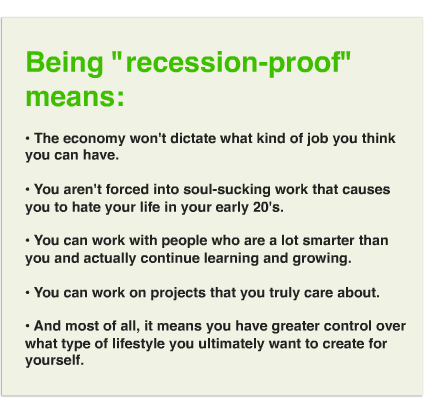College Admissions
College Admissions
Preparing for College
The Best College for You
What to Study
Applications
Education Options
Education Options
Private Universities
Public & State Universities
Community Colleges
Scholarships
Scholarships
African American Scholarships
Latino Scholarships
Native American Scholarships
Women Scholarships
College Grants
College Grants
Federal Grants
Merit Based Grants
Need Based Grants
Student Loans
Student Loans
Federal Student Loans
State Student Loans
No Co-signer Student Loans
Bad Credit Loans
Student Loan Consolidation
College Survival
College Survival
Financial Aid Tips
The Digital Student Blog
Readers of our blog know our emphasis on value. For that reason we have noted the importance of the payback ratio and the concept of the honors college.
 Furthering our value concept, we have also posted our five reasons to consider your local state university. All told, it is our view that state universities consistently offer some of the best values going.
Furthering our value concept, we have also posted our five reasons to consider your local state university. All told, it is our view that state universities consistently offer some of the best values going.
But such a position must go hand in hand with the most important statistic, college completion. While the public is often bombarded with America’s K-12 school dropout issue, the fact is that college dropout rates far exceed what transpires in the K-12 sector.
These poor results as well as lists of the best and worst college graduation rates recently hit the headlines with the release of the American Enterprise Institute for Public Policy Research’s release of Diplomas and Dropouts (PDF).The private, nonpartisan, not-for-profit institution dedicated to research and education on issues of government, politics, economics, and social has compiled the completion rates of all American colleges and universities.
For the record, the study utilizes the common six-year completion method, i.e. those who complete their degree within six years of entering school. While we would prefer to see summaries of those who complete their program within four years, the six-year figure is the going standard. Those reviewing the report will find the highest and lowest grad rates for students based on school selectivity but the report does not offer a complete breakout for state universities.
Given our ongoing support of state university systems, we took the time to review the AEI report for readers. Below you will find our list of the top ten state universities by graduation rate. All offer very strong numbers.
To be sure, not all of these schools have the same selectivity rating. And readers must understand that we cannot fully articulate the reasons why one school tops another. We do not know if it is because of stronger support for students, better instruction, or the proper level of entrance criteria. In fact we would guess it is most probably a combination of all of these elements and more.
The bottom line is not all schools are as successful as their counterparts. To get a full sense, we also offer a complete summary of all state institutions after our top ten. To give readers some other key data, our final list includes the percent graduation rate, in-state tuition and fee costs, total enrollment and the state graduation percentage (average of all colleges in that respective state).
The Top Ten State Universities by Graduation Rate
1. University of Virginia: 93%
2. University of California, Los Angeles: 90%
3. (tie) University of California, Berkeley: 88%
3. (tie) University of Michigan: 88%
5. (tie) Penn State 84%
5. (tie) University of California, San Diego: 84%
7. University of North Carolina 83%
8. University of Illinois: 82%
9. University of Florida: 81%
10. (tie) University of California, Irvine: 80%
10. (tie) University of Maryland: 80%
All State institutions:
Alabama
University of Alabama: 65% – $5,700 – 23,499
State Average: 42.9%
Alaska
University of Alaska: 20% – $4,477 – 10,990
State Average: 24.0%
Arizona
University of Arizona: 56% – $5,048 – 33,447
State Average: 52.0%
Arkansas
University of Arkansas: 58% – $6,038 – 15,913
State Average: 48.5%
California
University of California, Berkeley: 88% – $7,165 – 33,855
University of California, Davis: 79% – $8,124 – 28,868
University of California, Irvine: 80% – $7,556 – 25,839
University of California, Los Angeles: 90% – $7,165 – 36,733
University of California, San Diego: 84% – $7,456 – 26,466
State Average: 59.7%
* We have provided the data for the five largest branches.
Colorado
University of Colorado at Boulder: 67% – $6,636 – 28,171
State Average: 44.7%
Connecticut
University of Connecticut: 74% – $8,852 – 21,373
State Average: 60.8%
Delaware
University of Delaware: 78% – $8,150 – 18,716
State Average 47.0%
Florida
University of Florida: 81% – $3,257 – 47,600
State Average: 48.0%
Georgia
University of Georgia: 77% – $5,622 – 31,008
State Average: 44.7%
Hawaii
University of Hawaii: 55% – $5,390 – 16,505
State Average: 43.2%
Idaho
University of Idaho: 53% – $4,410 – 10,138
State Average: 41.7%
Illinois
University of Illinois: 82% – $11,130 – 40,248
State Average: 56.3%
Indiana
Indiana University: 72% – $7,837 – 36,151
State Average 53.1%
Iowa
University of Iowa: 66% – $6,293 – 25,685
State Average: 57.0%
Kansas
University of Kansas: 60% – $6,600 – 24,988
State Average: 46.7%
Kentucky
University of Kentucky: 62% – $7,096 – 23,600
State Average: 44.3%
Louisiana
Louisiana State University: 60% – $4,543 – 26,901
State Average: 40.1%
Maine
University of Maine: 59% – $8,330 – 10,130
State Average: 57.4%
Maryland
University of Maryland: 80% – $7,969 – 32,660
State Average: 59.4%
Massachusetts
University of Massachusetts: 66% – $9,921 – 22,655
State Average: 66.6%
Michigan
University of Michigan: 88% – $10,447 – 39,199
State Average: 52.1%
Minnesota
University of Minnesota: 63% – $9,598 – 41,927
State Average: 62.7%
Mississippi
Mississippi State University: 58% – $4,978 – 14,932
University of Mississippi: 53% – $4,932 – 13,977
State Average: 46.1%
Missouri
University of Missouri: 67% – $7,603 – 25,714
State Average: 51.8%
Montana
University of Montana: 42% – $5,141 – 12,129
State Average: 40.8%
Nebraska
University of Nebraska: 63% – $6,216 – 20,781
State Average: 52.5%
Nevada
University of Nevada: 41% – $4,201 – 21,938
State Average: 38.0%
New Hampshire
University of New Hampshire: 73% – $11,070 – 13,620
State Average: 57.3%
New Jersey
Rutgers University: 73% – $10,686 – 31,188
State Average: 57.3%
New Mexico
University of New Mexico: 44% – $4,571 – 20,870
State Average: 40.2%
New York
Stony Brook University: 59% – $5,760 – 20,573
SUNY at Albany: 64% – $6,018 – 15,590
SUNY at Binghamton: 77% – $6,012 – 13,376
SUNY at Buffalo: 61% – $6,218 – 25,252
State Average: 59.6%
North Carolina
University of North Carolina: 83% – $5,340 – 25,089
State Average 50.5%
North Dakota
University of North Dakota: 54% – $6,060 – 10,965
State Average: 44.0%
Ohio
Ohio State University: 71% – $8,676 – 48,583
State Average: 54.5%
Oklahoma
University of Oklahoma: 62% – $6,507 – 21,945
State Average: 38.8%
Oregon
University of Oregon: 65% – $6,174 – 18,902
State Average: 54.3%
Pennsylvania
Penn State: 84% – $12,844 – 41,817
State Average: 64.6%
Rhode Island
University of Rhode Island: 58% – $8,184 – 13,655
State Average: 67.1%
South Carolina
University of South Carolina: 63% – $8,346 – 23,955
State Average: 50.0%
South Dakota
University of South Dakota: 48% – $5,752 – 7,041
State Average: 43.3%
Tennessee
University of Tennessee: 58% – $5,932 – 27,620
State Average: 48.5%
Texas
University of Texas: 78% – $7,670 – 47,490
State Average: 45.8%
Utah
University of Utah: 56% – $4,988 – 22,845
State Average: 50.5%
Vermont
University of Vermont: 72% – $12,054 – 11,061
State Average: 56.1%
Virginia
University of Virginia: 93% – $8,690 – 21,889
State Average: 56.7%
Washington
University of Washington: 75% – $6,385 – 36,120
State Average: 59.2%
West Virginia
West Virginia University: 55% – $4,722 – 25,673
State Average: 42.6%
Wisconsin
University of Wisconsin: 79% – $7,185 – 38,652
State Average: 55.6%
Wyoming
University of Wyoming: 57% – $3,366 – 10,549
State Average: 57.0%
Cell phones and sex don’t mix – and we are not talking about sexting.
One really good thing about surfing the internet, I am usually sitting down when I click on that story of stories – the one that makes me sit up very straight and utter, are you kidding me? Of course, it is usually the s word I utter but you get the point.
The other day I am surfing Arianna’s wondrous site, The Huffington Post, to see which writer is taking that raving maniac Glen Beck to task today when I stumble on to the latest study, this one about cell phone use and texting.
In the realm of you have to be kidding, consider these results:
“Twenty-four percent of users under 25 and 12 percent of users over 25 allow electronic message to interrupt them while they’re in the bathroom.”
Even while on the hopper? Is nothing sacred?
And then this:
 “…over 40% of respondents saying they didn’t mind being interrupted for a message. In fact, 32% said a meal was not off limits while 7% said they’d even check out a message during an intimate moment.”
“…over 40% of respondents saying they didn’t mind being interrupted for a message. In fact, 32% said a meal was not off limits while 7% said they’d even check out a message during an intimate moment.”
And, what mind you, constitutes an intimate moment? I guess just what you might think:
“The study found that 11 percent admit to checking updates during sex (6 percent of users over 25 do the same).
“While the scope of this study is fairly limited, the results seem to echo recent findings that estimated 15 percent of Americans have interrupted sex to answer a cell phone call.”
No, nothing appears sacred anymore.
Now I stumbled onto this amazing set of revelations just after catching one of those moments we could dub a fabulous reality, the amazing photo of Tiger Woods tapping away on his cell phone while playing a practice round at the Masters. The amazing moment that will form the perfect photo over at TMZ whenever some other young lady feels the need to come clean and admit she has spent time with Tiger also led to a number of double entendre’s since reportedly Woods was filming his friend Mark O’Meara’s, ahem, putting stroke.
For the cell phone, etiquette-challenged young, we remind you of some of the basics:
Lights Out, Phone Off: Now this usually means that phones should be turned off in movie theaters, playhouses, and other stage venues. The ringer and the lighted screen both deemed as negatives in such a setting. Could it be that the 11 percenters never turn off the lights?
 Love the One You’re With: This usually translates to the notion that it is rude to take a cell phone call during a social engagement. Even more pertinent, it is deemed inconsiderate to take a call in the middle of a conversation. If by the slimmest of chances you truly think you must answer, you are supposed to ask permission to do so. Could it be that those who check updates during sex see the act as so distant it does not qualify as either a social engagement or a conversation? And what possibly could your significant other say when you ask, “Mind if take this call?”
Love the One You’re With: This usually translates to the notion that it is rude to take a cell phone call during a social engagement. Even more pertinent, it is deemed inconsiderate to take a call in the middle of a conversation. If by the slimmest of chances you truly think you must answer, you are supposed to ask permission to do so. Could it be that those who check updates during sex see the act as so distant it does not qualify as either a social engagement or a conversation? And what possibly could your significant other say when you ask, “Mind if take this call?”
Use Common Sense: This often translates to turning your phone off before a job interview, your best friend’s wedding or Grampa’s funeral. If the phone should be off anyplace a quiet atmosphere is expected, then why in heaven’s name would it be on in the bedroom?
Employ the Ten Foot Rule: The theory is you should maintain a distance of at least 10-feet from the nearest person when talking on a cell phone. Tough to maintain this standard even in a king size bed.
Times have surely changed. Whereas once upon a time the gentleman held the car door for the lady, today he is just as likely to be the passenger in her car.
Today’s digital world no doubt presents new challenges when it comes to manners and etiquette. That said remember the basics:
Lights Out, Phone Off – Love the One You’re With – Use Common Sense – Employ the Ten Foot Rule.
And then add this one other:
Keep the Personal Personal: on and off the phone.
The ability to learn from one’s mistakes is an art form. In fact, learning what not to do may just well be the single most critical step for success in life.
So it goes without saying that one of most valuable presentations for young workers would be one that focuses on the things one should never do. And if such recommendations could be presented with some very edgy humor, you could wind up with an award-winning bit that earns you countless speaking engagements.

Such is the unique emphasis of corporate keynote speaker and stand-up comedian Jeff Havens. Jeff is a Phi Beta Kappa graduate of Vanderbilt University – and former English teacher who honed his presenting and comedy skills the tough way, trying to get today’s digitally-oriented 9th and 10th graders reading Shakespeare and Homer.
While education may not have been his calling, his desire to teach has never waned. Hence he now engages corporate audiences, folks like General Electric, McDonald’s, Ford Motor Company, USBank, and Frito-Lay with his mantra, Uncrapify Your Life!, a bit where he encourages workers to “criticize others and outsource blame.” By first “highlighting and poking fun of the practices we’re all guilty of,” Uncrapify Your Life! provides a major “twist on the traditional motivational model.”
In addition, Jeff also offers another established keynote that is relevant to those new to or just about to enter the workforce. In his second bit, he offers some very powerful lessons on How to Get Fired!, deep meaningful lessons that will ensure your ability to get canned in even an up economy.
We caught up with Jeff over the weekend. The first time he was on his way from Madison to Omaha, the next time on his way back to Madison and just before heading off to St. Cloud. For the popular speaker that is just the tip of the iceberg for a month of February that will see him addressing audiences in Boston; Schenectady, New York; Savannah, Georgia; Kansas City, Missouri; and multiple cities in Illinois and Indiana.
It appears that public speaking and a humorous approach to serious topics runs in the family. My understanding is that your Dad Rex is also a comedian/motivational speaker?
Yep. He started out as a corporate lawyer – not a fact he advertises, since most people don’t think lawyers are the most hilarious group of people – but he got into comedy late, at 37, and seven years later quit law and went full-time at the comedy world. And he’s done it, he’s made a living – a pretty decent one, to be honest – as a completely invisible comedian. Corporate shows, cruise ships, etc.
There are a ton of us, invisible entertainers – comedians, magicians, jugglers, hypnotists, probably a few mimes in there – paying our bills when nobody knows who we are. Check him out – Rex Havens – if you’ve ever been married, thought about being married, or heard about somebody getting married, then you’ll love what he does with relationships.
Like when it comes to weddings, a woman’s clothes are folded, sealed, wrapped in plastic, saved and preserved as an altar and shrine for life. The man’s clothes are rented…and need to be back at the shop by Monday…because another guy needs ’em next weekend.
Anyway, when I decided to try my own hand at comedy – which has morphed into the content-oriented comedic presentations that I now do regularly for corporations and college students alike – anyway, when I decided to try it, I didn’t get into it because of him. But once I decided that I might want to pursue comedy as a career, he was a phenomenal role model. He taught me that this is a business, that you don’t just go to a club and shout into a microphone for your own entertainment. It’s a job, you have to be professional, you have to prepare and work and work and work. And I think that’s really helped me move up much faster than I would have otherwise.
Yet you chose at first to teach? High school English no less?
Ah, yes. High school English. Kids today just LOVE reading, by the way, which is why I’m no longer teaching. I taught 9th and 10th grade English – Romeo and Juliet, The Odyssey, all those ancient stories that so resonate with today’s cyber youth.
But to be honest, teaching is incredible. The good days are unbeatable – you really know that you’re making an honest difference, changing the world in some positive way – but the bad days are horrible. High highs, low lows.
 I liked teaching, but I didn’t like where I was. There was no parental support – for example, at my first parent-teacher conference of my 2nd year of teaching, 6 of my 120 students’ parents showed up. And ultimately, I was young, and not a terribly good teacher probably, and I couldn’t get my students to meet me halfway. A lot of them thought I was really fun – I brought my drums in one day for example to teach about the difference between rhyming and free verse poetry, and I dyed my hair pink as a reward for one of the girls in my class who had collected a certain amount of extra credit. But they just wouldn’t read. And I didn’t want to be pushing grammar worksheets for the rest of my life.
I liked teaching, but I didn’t like where I was. There was no parental support – for example, at my first parent-teacher conference of my 2nd year of teaching, 6 of my 120 students’ parents showed up. And ultimately, I was young, and not a terribly good teacher probably, and I couldn’t get my students to meet me halfway. A lot of them thought I was really fun – I brought my drums in one day for example to teach about the difference between rhyming and free verse poetry, and I dyed my hair pink as a reward for one of the girls in my class who had collected a certain amount of extra credit. But they just wouldn’t read. And I didn’t want to be pushing grammar worksheets for the rest of my life.
I will say this, though – there is absolutely no better preparation for public speaking of any kind than being a teacher. Every day, you are presenting to five or six audiences, some of whom are actively disinterested in or contemptuous of what you’re trying to say. After that, no comedy audience can touch you. I’ve had my share of less-than-stellar performances in my six years as a comedian, corporate speaker, and lecturer, but I’ve only had one that I’d consider truly awful.
Teaching gave me an enormous amount of confidence in my ability to handle stress in a public setting, and I think it’s paid itself off very nicely.
OK, let’s get to some brass tacks here – were you a little tongue-in-cheek in your book, that you have been fired from more jobs than our readers will likely ever have? And the longest job you ever held lasted exactly 43 days?
Honestly? Yes. I’ve never been fired. Although I have failed to get hired before, which you could consider to be a sort of premature firing. I’m guessing they knew that I’d eventually get fired, so they saved themselves the trouble of hiring me, being disappointed, and having to let me go.
Oh, wait. Yes, I have been fired once. For about 18 months I made a portion of my living on the streets of Nashville playing drums dressed up like a giant chicken. I bought a chicken suit on eBay for $100 – my first eBay purchase, by the way, and the best. You make a lot more money playing drums on the street dressed up like a giant chicken than you do dressed like a normal person. Anyway, one of the bars on 2nd Avenue in downtown Nashville started paying me to stand in front of their bar and attract business, which I did all through winter and spring until it got too hot in the summer – three or four hours of drumming on a street in a latex-lined chicken suit is hot enough in December, much less July. Anyway, when I came back the next fall, they didn’t feel like paying me anymore. Was I fired? Maybe not technically, but it felt like it. And the chicken drumming was just never the same.
And are you still really living in the family basement “feasting on box macaroni” at any moment you so please?
I love box macaroni. But no, I have my own house, with my own yard, and a lawn tractor because I’m 95 years old, and occasionally my wife and I stand in Home Depot and shop for houseplants. But every so often I will go into my own basement and eat box macaroni. Does that count?
The year 2010 will bring with it your first appearance on Comedy Central? Can you give readers a glimpse into the stand up routine you will be delivering?
 Sure. I still have a regular stand-up routine – I don’t do it as often anymore, mostly because I’ve been keeping so busy with Uncrapify Your Life! and How to Get Fired! – but my comedy routine is generally conceptual.
Sure. I still have a regular stand-up routine – I don’t do it as often anymore, mostly because I’ve been keeping so busy with Uncrapify Your Life! and How to Get Fired! – but my comedy routine is generally conceptual.
I deal mostly in ideas. Health care, education, how math can help you get into Heaven, language. I like playing with words, looking at the various absurdities of some of our everyday phrases and idioms.
Oh, and I’ve definitely got the best way to entertain yourself at the post office that I’ve ever heard of.
When listening to and reading about your award-winning, Uncrapify Your Life! keynote address, I couldn’t help but think of our good friends in Washington. Particularly when it comes to the notion of criticizing others and outsourcing blame!
I think the reason Uncrapify has been as successful as it has been is because people appreciate the fact that I’m calling all of us out. We’re all guilty of masking our criticism of others in seemingly innocuous phrases like “No offense” and “Don’t take this the wrong way,” and everyone is guilty of finding a scapegoat from time to time.
When it comes to my corporate audiences, I like to point out the things we’re all guilty of, have some fun with it, allow people to laugh at themselves, and then bring it back to something meaningful they can do to hopefully improve some tensions that have built up in their working environments.
But if we’re talking straight politics here, I’m extremely disappointed in our leaders’ collective inability to get anything significant done. I’m aware that Republicans and Democrats often work together on small issues, local affairs and things like that. But if it’s going to take 60 Senate votes for any major legislation to get passed, then absolutely nothing is going to happen. Everyone will blame everyone else, and things will only get worse. And I think it’s safe to say that most Americans would agree that that is not leadership.
While I can see the reverse psychology working for the members of the corporate world and with some work experience, I had wondered how it might come across to college students, that we might still be a little too narcissistic to really get it. But apparently I am wrong?
It’s been really interesting seeing how How to Get Fired! has evolved. Because to be perfectly honest, from a comedic standpoint college students are not the ideal audience for this presentation. As you point out, they have very limited experience in the working world, so there’s an extent to which they can’t fully appreciate the reality of some of the things I’m ‘encouraging’ them to do. I’ve had plenty of older audience members watch How to Get Fired!, and they absolutely love it – they’ve seen the behaviors I’m describing, they know people who have been fired for doing the things I’m talking about, and it’s a very rich experience for them.
 With college students, it’s all a little abstract. But that said, they’re still laughing. Good comedy will win out. But what’s really interesting is that when I get to the end, when I drop the satire and start talking more seriously about the things they need to prepare for as they move from college into the working world, they really perk up. Right at the point where I would expect them to start tuning me out and playing with their phones, they sit forward, they listen, they’re engaged in a way that has really pleasantly surprised me. They want to be ready for the rest of their lives, and I think they can sense that I’m there to help, that I want them to be as successful as possible.
With college students, it’s all a little abstract. But that said, they’re still laughing. Good comedy will win out. But what’s really interesting is that when I get to the end, when I drop the satire and start talking more seriously about the things they need to prepare for as they move from college into the working world, they really perk up. Right at the point where I would expect them to start tuning me out and playing with their phones, they sit forward, they listen, they’re engaged in a way that has really pleasantly surprised me. They want to be ready for the rest of their lives, and I think they can sense that I’m there to help, that I want them to be as successful as possible.
They might not understand all these ways to get fired on the deepest possible level, but I have to be comfortable with the fact that they will soon. It’s just like teaching, really – you don’t have students thank you for changing their lives until they’ve left you behind for a few years and had a chance to process what you did for them.
I think How to Get Fired! will function a little like that with some of my audience members. Again, everyone enjoys it in the moment – it’s been really successful. But I think there will a come a point for a lot of my college audiences a few months after they graduate when they say, “Oh, NOW I get it.”
In How to Get Fired!, you offer the Four Pillars of Poverty? Can you briefly introduce our readers to these Four Pillars? And is anyone of these a surer road to dismissal over all others?
Sure. The Four Pillars of Poverty, arranged more or less in order, are: Fake Your Resume, Establish Your Incompetence, Destroy Your Work Ethic, and Alienate Your Coworkers. Collectively, those four will guarantee that you never hold a stable job anywhere.
But if you want to shortcut your way to the unemployment line, I recommend focusing on destroying your work ethic. Which should be the easiest thing in the world, by the way, since college pretty much takes care of that for you.
In college you wake up when you want, go to class when you want if you want, choose the classes you take and drop the boring ones (or the ones that you’re in danger of failing), study when you want if you want, get drunk on Tuesday night whenever the mood strikes. Treat your job like college, and you’ll have no trouble getting fired.
And while destroying your work ethic is the best single fix, one of the more entertaining is the last one, alienating your coworkers. Why? Because it’s the only one of the Four Pillars of Poverty that can lead to you being burned in effigy, an honor usually reserved for traitors and deposed leaders. And there’s nothing quite as special as seeing a stuffed scarecrow with a picture of your face being attacked by an angry mob as you’re being escorted from your office by security.
While your focus is on humor and what not to do, my understanding it that when you are presenting you do bring the message full circle, offering some serious advice. Can you share with our soon-to-be graduates a couple of key pointers regarding the transition to the work world, particularly in these challenging economic times?
Absolutely – and yes, How to Get Fired! ends with a more serious discussion on various ways that students can succeed not only in getting a job but also in keeping one. I guess the two points I’d emphasize are these: you can’t treat your job the way that college allows you to treat your classes. The biggest single complaint that employers have about recent college graduates is that many do not seem to be willing to put in the time necessary to move themselves into those upper-level positions that just about every college graduate thinks they’re automatically entitled to. In college, you can put down a book if it’s boring, you can skip a test if you feel like sleeping. You can’t do that at your job.
 And the second thing to know: get ready to work. We’ve become a very pampered and self-absorbed country, and most of us expect things to always be fun or we don’t want to do them. But you have to understand that unless you’re related to the person who hires you, you’re not going to start at the top. Because no matter how much merit you think you have – or actually have – you can’t prove that without some experience behind you. It’s a climb, it’s going to take time, especially if you go into business for yourself. It’s no different than learning an instrument or a sport.
And the second thing to know: get ready to work. We’ve become a very pampered and self-absorbed country, and most of us expect things to always be fun or we don’t want to do them. But you have to understand that unless you’re related to the person who hires you, you’re not going to start at the top. Because no matter how much merit you think you have – or actually have – you can’t prove that without some experience behind you. It’s a climb, it’s going to take time, especially if you go into business for yourself. It’s no different than learning an instrument or a sport.
There’s a lot more in the lecture, and there’s even more in the book, How to Get Fired!: The New Employee’s Guide to Perpetual Unemployment. Advance copies of the book are available now on my website. Also, any school that hires me for the How to Get Fired! lecture gets 50 copies of the book along with it.
The book will also be in bookstores everywhere on April 1. Just in time for graduation. Not to be too self-promoting, but I think it’s a really funny book, and I swear you’ll get something out of it that you can use to help prepare for this weird working thing they make all of us do.
By all accounts, the job placement data for the Class of 2009 was exceedingly dismal. While everyone is hopeful of a better future and most signs point to an economy on the rebound, career experts insist that the Class of 2010 could well see similar job placement challenges.
The reason is quite simple – it seems that the poor 2009 job placement rates came in great part because a large number of 2008 graduates had been unable to secure a job in their field. Now, the Class of 2010 faces a double whammy, the cascading effect of two consecutive poor placement years.
Therefore, even as the economy turns the corner, next year’s grads will be competing with a number of currently unemployed folks for the few additional jobs that become available.
Becoming a Recession Proof Graduate
Given this sobering scenario, today we turn to Charlie Hoehn, the author of the interesting SlideShare ebook, “Recession Proof Graduate.” A 2008 graduate of Colorado State University, Charlie holds degrees in marketing and media studies.
 Currently touring the country with Tucker Max during the screening of his new movie: I Hope They Serve Beer in Hell, Charlie continues to work with Ramit Sethi, a partnership that led to Sethi’s recent book becoming a NY Times and Wall Street Journal best-seller, and with Tim Ferriss, author of the NY Times best-seller, The Four-Hour Workweek.
Currently touring the country with Tucker Max during the screening of his new movie: I Hope They Serve Beer in Hell, Charlie continues to work with Ramit Sethi, a partnership that led to Sethi’s recent book becoming a NY Times and Wall Street Journal best-seller, and with Tim Ferriss, author of the NY Times best-seller, The Four-Hour Workweek.
Charlie provides some pretty radical advice in Recession Proof Graduate. After reading his recommendations, we wanted to give Charlie some time to discuss his job search process, particularly his decision to throw out the traditional search model after seeing conventional techniques produce dismal results for him.
In your book, you talk about your initial job search upon graduating and the difficulties you had. At some point you came to the realization that the recession was not the issue, it was your use of conventional job-hunting methods and your expectations related to that search. Which realization came first, the need to change your expectations or your need to try a new search technique?
The need to change my expectations definitely came first. After I got turned away from a company I’d interned with for three months (and they LOVED me, by the way), I kinda knew the odds of me finding a well-paying, fun job were pretty slim. I changed my job hunting tactics later on out of sheer desperation, after trying the traditional methods for a few months and seeing godawful results.
You certainly turn one standard goal of the job search process on its head. Can you explain why the goal for graduates should not be focused so much on making loads of money?
I’m all for making a lot of money, but I knew that I didn’t necessarily deserve a big paycheck right away. I had to earn that right. So I think the goal for graduates should not be to immediately find a high paying gig, but rather to figure out how to maximize their potential future earnings. This can be done by learning in-demand skills, doing free work for specific people, etc. This way, you’re setting yourself up for making more money in the long run, while also making yourself more valuable as an employee and building your network.
 Another reason I don’t think grads should be too focused on money is because it will REALLY force you to figure out what your priorities are. I have a few friends who jumped into industries they don’t like because they were tempted by the promise of $60-80K in the first year on the job. Even I played with the idea of being a landman for an oil and gas company because I would have made $70K straightaway. But I also would have quickly grown to hate my life. And after a certain point, I would have been so emotionally and financially dependent on that big paycheck that there’d be no turning back. It’s far better, I think, to do free work for a few months. You’ll figure out what you truly want to do.
Another reason I don’t think grads should be too focused on money is because it will REALLY force you to figure out what your priorities are. I have a few friends who jumped into industries they don’t like because they were tempted by the promise of $60-80K in the first year on the job. Even I played with the idea of being a landman for an oil and gas company because I would have made $70K straightaway. But I also would have quickly grown to hate my life. And after a certain point, I would have been so emotionally and financially dependent on that big paycheck that there’d be no turning back. It’s far better, I think, to do free work for a few months. You’ll figure out what you truly want to do.
And really, should a student consider throwing away their resume?
Maybe not literally, but I do think resumes suck. Just from an aesthetic standpoint, I think resumes are awful. They all look the same — plain and boring — and when you consider that you’re in a pile with dozens (and sometimes hundreds) of other resumes, you have to realize that it’s nearly impossible to stand out. The average graduate will not have any remarkable credentials under his belt, so how is he going to beat out all these other faceless resumes? He won’t. So I say throw away your resume. A one-page document shouldn’t represent your past, present, and future. A blog or a portfolio are superior alternatives, and they can vividly illustrate a person’s thought process and skills.
The idea of working for free to obtain critical experience and skills isn’t really new is it? Is this not just the concept of an internship? And, didn’t you get the skills you needed in college?
Free work is very different from an internship, as Seth Godin pointed out. Free work allows you to work on your own terms: you get to work with the people you want to, on the projects you want to work on, in the industry you want to work in. The relationships with the people you work for will develop organically, and they won’t look at you as just an intern — they’ll actually want to help you learn and grow.
Did I get the skills I needed while I was in college? Yes and no. Yes, because all of the skills I’m currently hired and paid for were things I taught myself while I was in college. No, because college didn’t really teach me any new skills that employers would want to hire me for. College gave me a degree, a GPA, and four years of fun memories. None of those hold much weight in a recession.
In your ebook you explain that many folks insist that you have this new job search process all wrong – one honest fear of some of the folks I have talked to is that once you work for free that will become the ongoing expectation – how do you respond to folks who raise this concern?
I briefly addressed this at the end of the e-book. It’s all about managing expectations. If you don’t lay down a deadline for when the free work transitions to paid work (or introductions to other people, new opportunities, etc.), then you’re setting yourself up to be taken advantage of. Most people who take you under their wing to do free work will be more than willing to reciprocate and help you out if you do a really great job, but you need to make that clear upfront. I’ve done free work for a bunch of people over the last year and a half. I only felt like I got burned once, and that was when I did work for a struggling entrepreneur who was working on his first startup (which is why I recommend that graduates work for successful entrepreneurs).
I also try to work with people who are dependent on maintaining a strong, healthy personal brand online. I’ve built up enough credibility and have enough followers that it’s a bigger liability for them if they take advantage of me. This is not to say I would ever hold this over their head, or threaten them with it if things started to go poorly. Rather, it’s just to point out that it’s in their best interest to take care of me (which they do).
One key element is the suggestion to seek to do this free work virtually – why is this a point of emphasis in the process?
Doing work virtually really frees you up to work with anyone you want — you’re not limited to whatever local opportunities are available. You can work with people in other states, or other countries. Virtual free work is probably the best dynamic for graduates, because you can take on a bunch of projects all at once and choose which ones you want to continue pursuing. There’s very little risk involved for the employer (no money spent, no time wasted training), and there’s very little risk for the graduate. What’s the employer going to do if you screw up? “Fire” you? Probably not — you’re not eating up their payroll and you’re not using much of their time either. Even if you do end up parting ways, it’s not the end of the world.
You not only talk about the importance of a person’s online presence, you honestly inform folks that your initial online presence did not portray you in a very flattering light. Can you explain to readers what your initial presence looked like and the process you used to bury the negative elements to the Google hinterlands?
 What shows up in Google when you search for someone’s name is a little different from having an online presence. A few years ago, I had a Facebook and LinkedIn account — technically, that’s an online presence. But when you searched for ‘Charlie Hoehn,’ a CollegeHumor video of my friend riding his bike drunkenly down a flight of stairs (and crashing) was one of my top 5 results. Another one of my top results was an online article from CSU’s newspaper where I was quoted talking about abortion. My old Google results didn’t really give any employer much to work with in terms of figuring out what I’m like or whether I’d be worth hiring.
What shows up in Google when you search for someone’s name is a little different from having an online presence. A few years ago, I had a Facebook and LinkedIn account — technically, that’s an online presence. But when you searched for ‘Charlie Hoehn,’ a CollegeHumor video of my friend riding his bike drunkenly down a flight of stairs (and crashing) was one of my top 5 results. Another one of my top results was an online article from CSU’s newspaper where I was quoted talking about abortion. My old Google results didn’t really give any employer much to work with in terms of figuring out what I’m like or whether I’d be worth hiring.
I had to start a blog for the virtual internship I did with Seth Godin (I never planned on having one). Eventually, people started to link to me and actually write about me, for whatever reason. And all of those posts started to accumulate and bury my negative Google results. It wasn’t actually an intentional process to put me in a positive light online — it just sort of happened on its own.
How long did this process actually take?
I’m not entirely sure, but I want to say it was between 2-4 months before I had control of the top 5 search results for my name. It took a few more months to really get a stranglehold on the top 10 results. I have a fairly rare last name, so I’m sure it will take a lot longer for some people.
Your advice about starting a blog to help define your online brand comes with a couple of cautions – talk a little bit about those cautions.
A lot of people, especially graduates, make a huge mistake when they start blogging: they’re honest to a fault. They treat their blog as a personal diary, where they can talk about their alcoholism, or their inability to talk to women, or whatever other shortcomings they have. If you want to do that, go find an anonymous forum or something. Don’t do it on your personal blog if you’re legitimately trying to use it as a tool to get hired. You want to paint an honest yet flattering picture of yourself, so be professional.
 Quality of content is also HUGELY important. If you write up something half-assed and you know it’s not very good, don’t post it. I think it’s more of a liability to have a bad blog than it is to have no blog at all. You can talk your way out of mediocre search results, but if the writing on your blog sucks, you can’t really dig yourself out of that hole.
Quality of content is also HUGELY important. If you write up something half-assed and you know it’s not very good, don’t post it. I think it’s more of a liability to have a bad blog than it is to have no blog at all. You can talk your way out of mediocre search results, but if the writing on your blog sucks, you can’t really dig yourself out of that hole.
Two really key elements of your philosophy are to choose the right person to work for and to choose projects you really care about. Can you talk a little bit about the characteristics you focus in on when deciding which person or industry to target?
I have several questions I ask myself when deciding whether I want to work with a person or not:
• Does this opportunity excite me?
• Is it going to be fun, challenging, and intellectually stimulating? i.e. Will it help me grow as a person?
• Will more opportunities open up to me when this is over?
• Can I learn a new skill set if I work with them?
• How flexible will my schedule be if I take this? This is important, because if it’s a huge time-kill, I won’t take it.
• Is this person a successful entrepreneur? If no, proceed with caution. Entrepreneurs who have never succeeded are a big risk, and are usually too poor to ever pay much. They’re fun to work with, but it’s usually not worth the time.
• How well does it/will it pay?
There aren’t many criteria for deciding which industry to target. Basically, I just go after the ones that look the most fun.
When contacting potential targets, you rightfully note the need to do some intense homework on the target. You then note that that the student should suggest specific examples of free work he/she could do that will have a measurable impact on the targeted business. My fear is that this would come off sounding a bit presumptuous to the recipient?
 It’s hard to approach an employer with some vague description of what you can do for them or, even worse, saying you’ll help out however you can. It’s too broad and vague, so it’s hard for them to visualize how you’d be an asset. But if you lay out in specific terms how you think you can help them, and give them a few suggestions, it helps them fill in the gaps. You won’t force them to rack their brain on how they can use you. Instead, you’re helping them visualize how you’ll fit into the picture. Trust me, they’ll be very impressed that you brought a list of ways in which you could help.
It’s hard to approach an employer with some vague description of what you can do for them or, even worse, saying you’ll help out however you can. It’s too broad and vague, so it’s hard for them to visualize how you’d be an asset. But if you lay out in specific terms how you think you can help them, and give them a few suggestions, it helps them fill in the gaps. You won’t force them to rack their brain on how they can use you. Instead, you’re helping them visualize how you’ll fit into the picture. Trust me, they’ll be very impressed that you brought a list of ways in which you could help.
Can you give our readers a sense of a how you used this strategy to land some critical first opportunities?
Everyone I’ve approached for work in the last year has hired me because I laid out how I could help them specifically. Ramit Sethi was the first person I used this strategy on, and he eventually introduced me to Tim Ferriss. I gave Tucker specific examples of how I could help him, as well. Giving suggestions shows your initiative, and your willingness to emotionally commit to a job before you even get it. Try it, you’d be surprised at how effective it is.
Photos courtesy of Charlie Hoehn.
We have cautioned students on more than one occasion to think very carefully about the items they post on their social networking profile. The stories of Stacy Snyder and Kevin Colvin provide great examples of why one must carefully guard their personal online brand.
Of course, many current students as well as adults in their twenties and thirties have cried foul over what they deem an invasion into their private worlds. They argue that doing something on their own time, whether it be in poor taste or not, should play no role in their everyday world of work.
Prospective and current college students with such a mindset need to think again – even those who understand the need for student privacy note that using social networking profiles for admissions or job-placement is reasonable.
S. Craig Watkins

To get a sense of the thresholds for using profiles, we turn to the Wired Campus blog at the Chronicle of Higher Education and the recent Q & A with S. Craig Watkins, an associate professor of radio, TV, and film at the University of Texas at Austin. Watkins recently penned “The Young and the Digital: What the Migration to Social Network Sites, Games, and Anytime, Anywhere Media Means for Our Future” and is deemed an expert in matters related to the “new age of social networking and media.”
Indeed, Professor Watkins seems to have a great sense as to what the current crop of college students bring to their respective campuses. He rightly acknowledges that we digital natives are tired of the lecture format and therefore want a more engaging learning environment.
He also notes that we prefer a classroom that actively utilizes the vast world of technology and all its elements (laptops, netbooks, pda’s and cell phones) to enhance the learning environment.
Given his stature and understanding of current culture, students must carefully consider his insight into the whole Facebook and MySpace privacy discussion.
Online Profiles and Digital Monitoring
Watkins is clear about one trend he is not in favor of, that of colleges policing material on social networking sites, specifically to determine if the postings represent facets of campus life. When asked if it is a college administrator’s responsibility to be checking up on students through online profiles, Watkins states:
“I would encourage universities not to use technologies in that way — as a surveillance mechanism or tool. I would be reluctant to agree with or believe that’s an appropriate use of the tool.”
But while Watkins sees the monitoring of such sites as off limits for policing students, he offers a very different view when it comes to college admissions officers looking through student profiles when screening applicants.
 “I don’t necessarily have a problem with that,” states Watkins. “The problem becomes if they start fishing for unflattering or potentially damaging kind of content — pictures or wall posts — sort of deliberately using it to hunt for that kind of content, as opposed to simply trying to make maybe a better informed, insightful admission decision about a student. It is an opportunity to learn about people’s interest, the kinds of things they are engaged in, in terms of community-related issues and social issues. In that sense, it does provide a window into a person’s life, and into a person’s interests that can be a value to an admissions committee.”
“I don’t necessarily have a problem with that,” states Watkins. “The problem becomes if they start fishing for unflattering or potentially damaging kind of content — pictures or wall posts — sort of deliberately using it to hunt for that kind of content, as opposed to simply trying to make maybe a better informed, insightful admission decision about a student. It is an opportunity to learn about people’s interest, the kinds of things they are engaged in, in terms of community-related issues and social issues. In that sense, it does provide a window into a person’s life, and into a person’s interests that can be a value to an admissions committee.”
And as for employers looking, Watkins insists it is now a permanent part of the hiring landscape.
“That’s becoming more and more of a common practice. Graduating students, one of the things that they indicated is that when they went out for interviews for jobs, one of the first thing they were asked is, ‘Are you on MySpace?’ or, ‘Are you on Facebook?’ Their potential employers wanted to get access to their profiles.”
Clearly, when it comes to selecting a new employee businesses want to be certain they are making the right choice. And because of the importance to them in making the right hire, students can expect potential employers to do some digging to see if they turn up anything negative.
Not too surprisingly, Watkins notes that such questions routinely cause a certain amount of panic among the group of students who have failed to consider the importance of their personal brand. In a flurry of activity, they attempt to undo any damage that has been years in the making.
Don’t be one of the foolish ones – carefully think about everything you post online. While it is possible, sometimes, to take down questionable materials prior to the wrong person seeing them, the chance that you will miss something is very high.
And don’t try to convince yourself that decision-makers looking at such profiles is somehow an invasion of privacy. If something should truly be kept private, then don’t post it online.
Flickr photo courtesy of Stabilo Boss.
My first semester of college was an enormous wake-up call. For starters, the academic expectations were easily a shelf above those I had seen in high school.
But the greatest difference involved what I now call the level of hand-holding. As opposed to those wonderful and understanding high school teachers, my professors made only casual reminders of long-term assignments and they never postponed an exam simply because some students did not understand the material.
Simply stated, I made some mistakes my first semester that cost me dearly – by the time Christmas rolled around there wasn’t a single A to be found on my grade report and in at least two cases, classes that should have resulted in B’s had turned to C’s.
 Fortunately, I had greater expectations for myself. I also was a relatively fast-learner – I say relatively fast because it did take me one full semester to figure things out.
Fortunately, I had greater expectations for myself. I also was a relatively fast-learner – I say relatively fast because it did take me one full semester to figure things out.
Established students will likely find my missteps obvious but perhaps those of you starting your first semester can learn from my “Seven First-Semester Mistakes.”
Mistake 1. Failing to Realize You Are on Your Own
This one of course is one of those obvious ones for established students but it permeated my first semester of school.
The best thing about going to college is you finally are on your own. There will be no one nagging you about getting to bed at a certain hour or about spending too much time at the gym. No one, not even your resident assistant, will be hovering over you, asking you about whether or not your homework is done or when your next test is coming.
At the same time, the academic expectations begin with the very first class. Add to that fact that semesters are short on class time (much less frequent than in high school) and you soon learn that you have much greater work expectations between class sessions than you ever did in high school.
Still, the academics pale next to the expectation that you are, and will be, a responsible young adult. Ultimately, the nagging is replaced with a basic assumption that you are old enough to handle responsibilities without being reminded of them daily.
Mistake 2. Being Unorganized
Another major mistake I made was the failure to create a master schedule of my courses and the assignments for the semester. Though I did create a notebook with separate sections with each syllabus, I never synthesized the materials on one master calendar.
 The bottom line was that many times I got caught not looking far enough ahead. On more than one occasion I found myself running out of time as materials became due or test dates arrived.
The bottom line was that many times I got caught not looking far enough ahead. On more than one occasion I found myself running out of time as materials became due or test dates arrived.
That first semester I learned the importance of taking the entire syllabus for each course and plotting all daily assignments, major projects/papers and exams on one master calendar. Doing so in future semesters helped me to understand that while this Tuesday I might have had little to do, next Tuesday the expectations might be so great I would need to be up half the night to complete all that was expected.
Every Sunday night I would review the upcoming week in detail, then scan the expectations for the following two weeks to see what I should begin working on ahead of time. Of course, creating such a calendar is a time-consuming first task – but it was a life-saver in future semesters.
Mistake 3. Being Unorganized – Redux
The second organizational aspect related to retaining all materials for the semester in their appropriate notebook. Those materials included all the original handouts, the additional ones provided during the semester and all returned assignments, quizzes and tests.
On many occasions I spent five, ten or even fifteen minutes searching for a certain document that was on my desk somewhere. On other occasions, I actually lost some graded materials, papers I could have definitely used in preparation for final exams.
I learned that first semester that I would receive and produce more materials than I ever did in high school and that taking care of those materials when I received them saved countless hours of time over the course of a semester.
Mistake 4. Multiple Course Sections Are Available
Another element I learned the hard way was that at college you had choices as to which courses and sections you opted to take. You can pick classes according to your learning style as well as quality of teaching.
For example, lecture-based classes were not my forte and taking them on Tuesday and Thursday meant longer class periods and an even greater test of my attention span. Such classes were far more manageable for me following a Monday-Wednesday-Friday format.
Perhaps even more importantly, the multiple sections of courses means you do not have to put up with a low quality instructor. That first semester I mistakenly sucked it up and stuck out two such classes, both to my detriment.
College is difficult enough without having to try to deal with poor quality instruction or a disorganized professor. In such cases, even first semester freshman can seek another section of the course immediately.
Mistake 5. Thinking Your Dorm Room Is a Great Place to Study
The need for a quiet place to do some real studying is essential. Yes, most times you can work in your dorm room or the lounge, but no matter how good your roommates or dorm-mates are, even at the quietest moments there will be distractions.
 To get some real focused time you must find a place where you can truly disappear. I have heard some say you must find a cave somewhere on campus.
To get some real focused time you must find a place where you can truly disappear. I have heard some say you must find a cave somewhere on campus.
They exist – I found mine in the back stacks of the library. And you must use your place whenever you need to find some real quiet time.
Most importantly, you and only you, the young adult, can determine when such a time is needed.
Mistake 6. Asking for or Accepting Extensions
Because of my somewhat lackluster organizational skills, I remember struggling to complete one major paper for my Economics class. As I stated earlier, I simply had not plotted out an overview of the semester and all of sudden I seemed to be struggling to find the time to meet a group of expectations as final exams approached.
Naively, as the deadline for that major assignment drew near, I overheard a classmate discussing a possible extension with the professor. The professor offered some simple extension terms, one-third of a letter grade per class period (one period late, a B+ would drop to a B, two periods late that B+ would drop to a B-, etc.).
I convinced myself that the extension terms were reasonable and would help me. Given I had decent writing skills, I foolishly decided to take one additional week (three class sessions) to turn the paper in.
At the time I assumed my final product would earn an A or A- meaning at worst I would take home a B- or C+ for the paper, a good enough score to maintain the B average I had worked all semester for.
Evidently I wasn’t quite the writer I thought I was – remember the point about increased expectations earlier? The professor scored my original paper a B-, with the docking it became a C-, and because of the grading weight of the paper, my B average for the semester fell to a C+.
I learned the hard way to get my work done when it was due.
Mistake 7. Not Limiting the Social Scene
At college, social events occur virtually every night of the week. From athletic events to open-mic nights to movies there is always something available to do that seems more enticing than your studies.
Add to that the Thursday night party group, the students taking a less demanding academic program (and content with earning Cs in those courses) and you always have someone trying to get you to take a few hours off for some social activity.
Taking time from studies is critical to maintain an emotional balance. But if you are not careful, it is all too easy to get pulled away by your roommate or other dorm-mates at times when you really should be getting some much needed work done.
Remember there is always something social to do and someone you know will be doing it – that simply means you can skip specific social opportunities when work demands prevail as there will always be another fun thing to do tomorrow.
At long last the folks at LiveScience have confirmed what many of us have known for a long time. Swearing, if not good for the soul, at least makes our pain and suffering more tolerable.
 But unlike what I was taught, that instead of keeping those colorful no-nos locked up and in its place you should utter some other more appropriate phrase, something like, OH FUDGE or CHRISTOPHER COLUMBUS, well that was just plain wrong. It seems that it takes the real thing, one of those down and dirty expletives that your mother best never hear to make the pain and suffering truly more tolerable.
But unlike what I was taught, that instead of keeping those colorful no-nos locked up and in its place you should utter some other more appropriate phrase, something like, OH FUDGE or CHRISTOPHER COLUMBUS, well that was just plain wrong. It seems that it takes the real thing, one of those down and dirty expletives that your mother best never hear to make the pain and suffering truly more tolerable.
Universal Human Linguistic Trait
Yes, it seems that when one stubs their toe, it matters not if we are American, British or some other nationality. It is essentially a reflexive matter – the pain causes us to promptly mutter a curse word that instinctively makes it easier to withstand the pain we have been so blessed to receive.
In connecting the uttering of a cuss word to the actual physical experience of pain, the researchers noted that the reactive phrase emerges from our emotional brain center. Whereas most language production occurs in the left cerebral hemisphere of the brain, a truly blistering expletive comes forth from the right side of the brain.
The researchers began with a supposition that did prove false. The initial idea was that swearing was more of an exaggerating effect that sought to overstate the severity of the pain striking the recipient. Because of that assumption, the researchers thought that swearing would lessen a person’s tolerance.
Not so.
The Experiment
 According to LiveScience, the results were based on the following experiment:
According to LiveScience, the results were based on the following experiment:
The researchers enlisted 64 undergraduate volunteers and had them submerge their hand in a tub of ice water for as long as possible while repeating a swear word of their choice. The experiment was then repeated with the volunteer repeating a more common word that they would use to describe a table.
The surprising result?
Contrary to what the researcher expected, the volunteers kept their hands submerged longer while repeating the swear word.
Accordingly, the researchers surmise that swearing triggers the body’s natural “fight-or-flight” response and therefore allows for an increase in pain tolerance. Ultimately, the belief is that swearing may increase aggression (seen in accelerated heart rates) and downplays weakness to appear stronger or more macho.
Just Let It Fly
So if you stub that toe or more to the point, if you have to stick your hands in ice cold water for a really long time, don’t utter some ordinary word like fudge or table. Not if you want to reduce your pain and suffering.
Instead, just let those cuss words roll off, hard and fast and as nasty you can fire them. It seems, it is in fact, good therapy.
Just as long as your mother doesn’t hear you.
Stating that the internet has changed life as we know it is an understatement of epic proportions.
Still, even for those who understand the power of the internet, it is hard to imagine stories like that of Miss Pipi Quinlan, certainly not prior to the technology age. But her story offers some critical lessons for those of every age.
For those who missed it:
Three-Year Old Purchases Excavator Online
Young Pipi Quinlan had, at last, been given permission to use the family computer. Of course, at three-years-old she was still a tad on the youngish side for such permission and her access had been allowed for but a week when she made internet history.
 You see, her mom had done what so many of us do (here’s the first place we all need to pay attention). Ms. Quinlan had asked the computer to store log-in information to make it easier to bring up those sites she would use frequently.
You see, her mom had done what so many of us do (here’s the first place we all need to pay attention). Ms. Quinlan had asked the computer to store log-in information to make it easier to bring up those sites she would use frequently.
Mom had set up such a log-in on an auction site which Pipi then managed to reboot. While mom had used the site earlier to bid on some toys, Pipi took a little different track.
Instead of a kid’s plaything, she bought a man’s toy, managing somehow to place a bid on a Kobelco, a “digger” as folks in New Zealand referred to the excavator. Though still no one is not quite sure how, the youngster had posted a bid of 20,000 New Zealand dollars, about $12,300 by our standards, for an earth mover that was anything but a toy.
Momma Quinlan learned of her daughter’s action when she opened her e-mail the following morning. There she found several e-mails from, the auction site TradeMe, announcing she had won an auction and from the seller noting that she would love her new purchase.
Fame and Notoriety
The story of course reminds us why we should never store personal information on a computer. It also makes it clear that when we become parents we need to think things through a wee bit more carefully because children are amazing little creatures.
In the age of the internet, technology can create issues we never conceived of previously. Most of the focus has been on the actions of the youngster.
And of course, the press had a field day with one liners (toddler usually prefers high-heeled pink shoes over giant yellow and black diggers).
 But what is truly amazing is an internet search of the name Pipi Quinlan now reveals page after page of links to reports and commentary of this cute little story (OK, us too). It reminds us that in this day and age, privacy is minimal and our actions can be shared globally in the matter of minutes.
But what is truly amazing is an internet search of the name Pipi Quinlan now reveals page after page of links to reports and commentary of this cute little story (OK, us too). It reminds us that in this day and age, privacy is minimal and our actions can be shared globally in the matter of minutes.
Whether she likes it or not, this information will always be part of her online brand. Fortunately, this could be one of those cute stories that ultimately works in her favor sometime in the future. We hope so as it will be archived forever.
All’s Well that Ends Well
Meanwhile, it seems the story has ended positively. The auction site has negated the winning bid and reimbursed the seller’s costs. Reportedly another adult went on to make the purchase for real.
The elder Ms Quinlan also noted one of parenting’s greatest challenges. You see, it was extremely difficult explaining to the three-year-old the gravity of her actions, especially doing so without laughing.
In addition, the parents have learned another valuable lesson. Pipi has since been banned from using the computer by herself but, just in case, the Quinlans have deleted all their automatic log-ons just in case.
The only question remaining is how long before you delete yours?
If you are not familiar with Cat Stevens and his famous song, Father and Son, you should be. It is filled with many short, meaningful lyrics such as:
You’re still young
That’s your fault,
There’s so much you have to go through.
Gaining Respect in the World of Work
Those about to venture beyond the campuses they have called home for the past four years may well be entering the harshest work environment since the great depression. Jobs are exceedingly difficult to come by – for the better part of several months, nearly as many people have been laid off from work each and every week (600,000+) as will graduate from college this year (700,000+).
So the chances of finding work are extremely challenging. If you do find someone willing to give you a shot, be ready for some good old-fashioned jealousy on a number of fronts. After all, who are you, still wet behind the ears, to be so lucky as to be awarded an opportunity in this job climate?
Gaining respect has never been easy for someone fresh out of school. People always look at the newbie with a raised eyebrow and a not so subtle, prove it to me attitude.
But in 2009, your first days may well be met with an even stronger response, one that features more than a tad of resentment. To gain respect in today’s job setting, you will need to make all the right moves.
Origins of Respect
First off, respect doesn’t come from a title or because you have been assigned authority. In fact, if you are a newbie, the fact that you have been given a title by your boss could make your first days even more challenging.
Respect is earned and gained over time. It is given to folks who do their work well and consistently demonstrate they can become an integral part of a team. Perhaps most importantly for someone young and new to the company, respect is given to those who make others feel like they are an integral part of the team.
However, generally speaking, it is only over time, after you prove you can handle the challenges, that you will earn the trust and respect of those around you.
That said, here are three things to keep in mind:
A. Humble Beginning
Remember, you only get one chance at a first impression. To gain respect quickly, begin by acknowledging you are the newbie. Whatever you do, don’t give folks the impression that you are one of those stereotypical, brash, spoiled, over-confident, know-it-all’s college kids.
 Because that is what they think you will most likely act like.
Because that is what they think you will most likely act like.
Instead, be polite and respectful of those who have established experience. Study your environment carefully and be sure to ask questions and seek the advice of others.
The first real sign of maturity is the acknowledgment that you do not know it all, not by a long shot. And demonstrating maturity is the first way to begin earning the respect of colleagues.
B. Demonstrate Good Work Habits
Without being flashy, model what it means to be a good worker. Show up early or at worst, on time. Stay late.
Take your break only for as long as is permitted. If lunch is a half hour, take 28 or 29 minutes max.
Be attentive in all meetings. Listen carefully and avoid being the first to speak about issues. Instead, listen to what everyone else has to say before venturing your opinion.
Veteran employees will think of things you will never have even considered. Waiting before you speak will ensure that you will not commit the most famous of faux pas: putting one’s foot in one’s mouth.
Join work groups and take advantage of every seminar available. Be careful not to take on more than you can handle but being a part of a work group will help you get acclimated to the company much more quickly while attending seminars will ensure your knowledge of industry practices is totally up-to-date.
C. Help Others
 Find ways to help other company employees be successful. If you have an idea, talk about it with a pertinent colleague. Collaborate with them instead of trying to make the idea solely your own.
Find ways to help other company employees be successful. If you have an idea, talk about it with a pertinent colleague. Collaborate with them instead of trying to make the idea solely your own.
If a colleague asks for assistance with a task, take time from you schedule to give it your focus and your best effort. If after careful examination you cannot help, admit it. Most people will see right through any youthful attempt to blow smoke by them.
If you can help, be sure to come across as offering suggestions and advice for consideration. Avoid any language that would give anyone the impression you are telling them how a specific task ought to be done.
Ultimately, Avoid Being an Idiot
No one sums this respect notion up better than Chuck Westbrook, who has his list of “6 Ways to Get Respect Quickly, Despite Your Youth.” Number six puts it in words we can all fully understand:
“Avoid being an idiot,” writes Chuck. “Subtle advice, no? Anyone who’s spent any amount of time in an office has seen talented people who can’t stop shooting themselves in the foot with stupid habits. Improper attire, showing up late, inappropriate jokes, failure to stop talking about oneself… The list goes on and on. Exercise good judgment and at least be aware of the norms in your workplace.”
He goes on to add that “you need to prove you can follow the rules before you can get away with breaking them.” We would suggest that you take that one step further and forget about getting away with breaking any rules.
Because as Chuck concludes:
“It’s hard to get respect when you’re fired.”
To enhance one’s college admissions chances, there once existed a longstanding belief that the more activities a student could list on their application the better. However, in recent years that myth has been clearly debunked.
An unending list of activities is now seen as potentially backfiring, being viewed primarily as a list constructed so as to impress college admissions officers. Instead, most admissions officers see such lists as demonstrating that a student has no real idea what they are truly interested in.
Instead, today’s teaching point for students is to become deeply involved in one or two interests. Spending time on certain activities demonstrates a passion for the activity. Moreover, a resume built on a record of the student’s involvement in that activity will go a long way towards helping admissions officers learn who you are, a critical component in the decision process.
Leadership Component
 In addition to extensive involvement in one or two activities, the general sentiment is that developing a leadership role within these endeavors is a key component of rounding out that resume. That idea is accurate, a leadership position within one of these activities can be very helpful during the admission selection process.
In addition to extensive involvement in one or two activities, the general sentiment is that developing a leadership role within these endeavors is a key component of rounding out that resume. That idea is accurate, a leadership position within one of these activities can be very helpful during the admission selection process.
But in true American-selling fashion, the importance of leadership credentials has led to a whole new industry, one that is formed around the idea of leadership training.
Diana Jean Schemo recently took a look at this industry for the New York Times. Her piece, “Congratulations. You Are Nominated. It’s an Honor. (It’s a Sales Pitch.)” clearly articulates that students need to be aware of a number of come-ons that are nothing more than sales pitches.
And they represent sales pitches of the worst kind: playing on a student’s inner emotions and their goals of higher education.
They come in the form of a letter that appears to be awarding the student recognition. As the title of the article suggests, these letters begin with congratulations, assuring the student they have been selected based on their record of achievement.
Specifically, they invite students to leadership seminars, offering them a chance of a “lifetime advantage” and “valuable addition” to his/her resume. The letter uses words like “elite,” “distinguished,” and “select.”
The power of positive feedback makes the recipient feel “unique and gifted” but then plies on that new push: the one that says students need to develop their leadership skills if they want to assure themselves the best chance at admissions.
The seminars are real and many students decide to attend. And all-in-all, participants who attend report they are satisfied with the experience. Many also later recommend friends.
Unfortunately, according to Schemo, these seminars appear to be nothing more than a marketing scam. The number of students who attend at the prices set by these companies allow these for-profits to make significant sums of money off the students.
In most cases, parents pay $2,000 to $3,000 for students to attend these multi-day programs that turn out not to be as elite as they portray themselves to be.
For one particular conference cited by Schemo solicitations “begin filling mailboxes, virtual and real, as soon as children reach middle school, and continue coming through college. In a variety of settings, from Congress to Caribbean beaches, programs advertise their ability to cultivate leaders.”
 The selection offers such statements about those selected as “the nation’s most highly acclaimed students” and “most promising young leaders of tomorrow.”
The selection offers such statements about those selected as “the nation’s most highly acclaimed students” and “most promising young leaders of tomorrow.”
There’s the National Student Leadership Conference with a program fee of $1,600 to $3,000 and the LeadAmerica’s Congressional Student Leadership Conference “which also advertises college credit” for the experience. Schemo insists that most universities will not accept it.
There’s the People to People Ambassador Programs which has had to apologize to families for sending invitations to deceased children and in one instance, a deceased family pet.
But the poster child according to Schemo is the Congressional Youth Leadership Council, a program that boasts more than half a million student attendees. The company, once a nonprofit, now is purely a business despite the fact that it retains its web “”.org” label.
Grossing $56 million, they returned a mere pittance in scholarships and grants to students (less than one million). Parents basically cover the costs while needy students are encouraged to fundraise their way to the conference.
Not the Real Deal
Ultimately, no experts report evidence that these programs have a lasting effect on the students who attend though parents often insist that their child comes back with greater self-confidence.
Meanwhile, Envision, the sponsor of the aforementioned Congressional Youth Leadership Council had 28 unresolved complaints as of April 8; they ranged from advertising practices to contract disputes to program quality.
 But what students most need to understand is that such seminars are relatively meaningless as resume builders, at least in the eyes of college admissions officers. They insist “a leadership conference is no more or less likely to enhance college applications than, say, soccer camp.”
But what students most need to understand is that such seminars are relatively meaningless as resume builders, at least in the eyes of college admissions officers. They insist “a leadership conference is no more or less likely to enhance college applications than, say, soccer camp.”
Real honors, say college admissions folks, generally do not come with a price tag. Schemo refers to Susan Garrity Ardizzoni, director of undergraduate admissions at Tufts, who notes that some students invited to these sessions are clearly not of the caliber she would call leaders.
“For us,” she says, “activities or essays are most meaningful for students where there’s an established track record or interest.”
Students should keep these factors in mind as they consider shelling out two to three thousand dollars for such an experience. These seminars are not as selective as their sponsors lead students to believe.
Students might find these programs enjoyable – in fact, they well should at $2,000-3,000 a pop. But as for giving students additional resume material for admissions, it appears that this money certainly could be better spent.